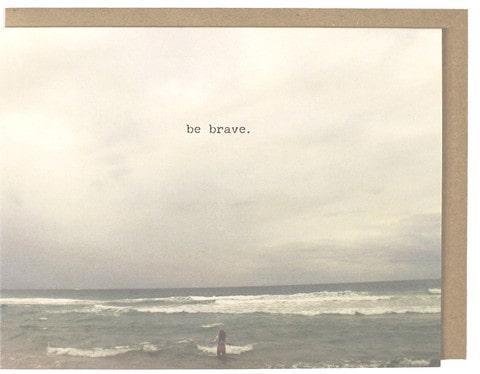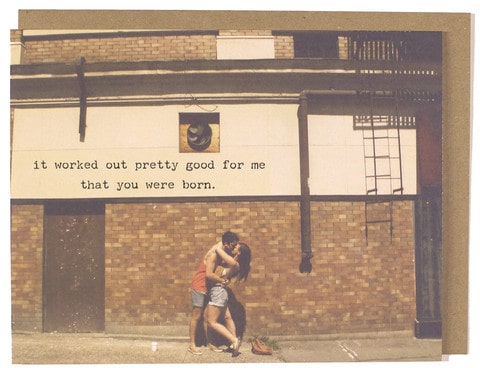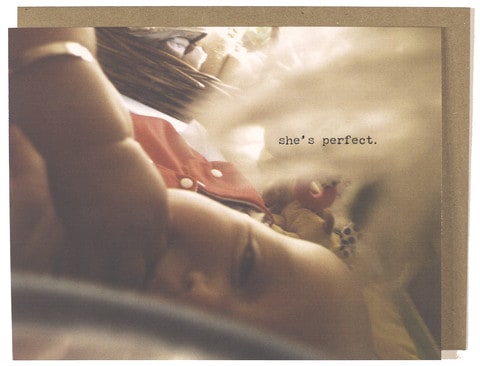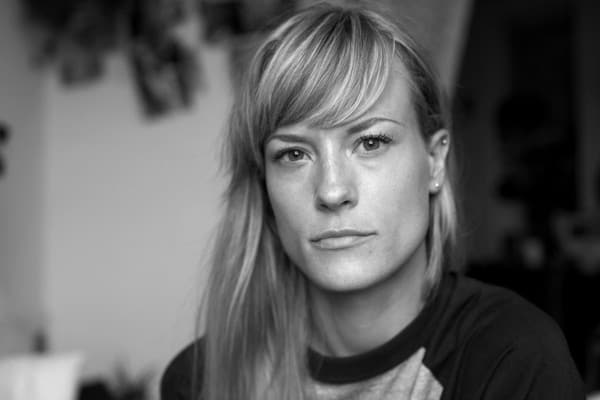Ladies Who Lead is an interview series that features young women who have carved their place into some of the most cutthroat industries out there. Their paths to the top may not be linear; they may have not always gotten it right the first time. But these driven, savvy women have succeeded thanks to their strong work ethic and will to design their lives according to their own high set of standards.
But we aren’t just going to point and look at shiny things. Instead, we are going to decode how these women got here and how we—the unemployed, the underemployed, the misguided, the interested—can follow their lead. Shedoesthecity brings career mentors right to your screen every week. Real women, real careers, real advice.
Danielle Kreeft is the creator, director and owner of Dani Press, home to a beautiful stationery line that is great for letters but so beautiful it’s hard to part with when it’s time to mail off! Can we just frame the entire collection, inside and outside? Please? With the perfect heartfelt message and/or stunning photo for every occasion, Danielle’s line is always expanding and becoming increasingly available in Canada, the United States and around the world. Based out of Vancouver, British Columbia, Danielle enjoys coffee shops, worldwide travelling/domination and her vintage Remington typewriter.

SDTC: How did you find Dani Press?
DK: When I was four years old, I moved from Ontario to Alberta. My cousin and I kept in touch over the next decade and a half through airmail. She would always send me love letters, all kinds of pencil crayons, lots of stickers. That was a huge part of my childhood–airmail and cards and letter and notes. It wasn’t until I was graduating and figuring out what I was going to do with my life that I started hearing, “Why don’t you try making cards? You’ve always thought about it.” But I kind of passed it off as not actually being a career.
I left it behind, started travelling and that’s how I fell into journalism. I fell in love with South Africa, and went there the next year for school and missions work. After that, I did a world trip. Every year, there was a new thing and I ended up going to South Africa 5 times in a row and doing journalism there during the World Cup. It wasn’t until later that I came back to stationery, and knew that I didn’t want to be in news. Stationery had always been there and I think it just took a lot of time–almost a decade–for it to bubble back up. When I looked at my sack of travel photos, my writing experience and my career options as far as what I actually wanted to do, it all lead into Dani Press.
SDTC: How does your travel experience bleed into your work with Dani Press?
DK: When you look at the cards- in terms of being encouraging or “Bone Voyage!” or saying go out and have an adventure- you see that’s what I did. I was out there taking these photos and it was only through my personal experience that I felt like I had any clout in this way. The travels are there, in the photography. They are the inspiration behind a lot of the sentiments on the cards.

SDTC: What’s a typical day at Dani Press?
DK: I’m at my desk at 9 AM. I do my Storyline Productivity Schedule to keep myself on track and outline three big tasks that I need to get done, whether that is sending out promo letters, getting in contact with bloggers, sending orders or updating my accounting. I have my hands in all different sorts of pots. I’m going to a coffee shop and thinking about the next holiday, going out and taking photos, meeting with people that run a magazine or run a blog, connecting with them and sharing the passion in that way. Your head can get so into the work aspect that if you don’t have anything creatively fulfilling or filling you with steam then your brain starts to melt. So yes, you’re trying to peddle the business aspect while still remaining true to why you’re doing it in the first place.
SDTC: In this increasingly digital age, why will cards and stationary always be important?
DK: People know what it means when you write out a card, take the time to write their address, put a stamp on it and take it to the post office. It’s never going to die; it’s only actually going up in value. And I think it’s an important thing to keep as a tradition, as far as how we correspond with each other and how we communicate. We are always going to have people that we love who are across the world and across the country and we’re always going to need ways to say thank you.
SDTC: What is your process for dreaming up a specific card?
DK: I do three things. I‘ll remove myself from my house because I get super distracted. You always think a certain way when you’re in your apartment so I’ll go to a coffee shop or I’ll go for a drive. I’ll listen to song to lure me into the mindset of whatever holiday or what rotation it is, Christmas music or I’ll listen to love songs. If it’s going to be a friendship card, I’ll go into my box of cards and see what friends have told me that I found encouraging. I’ll go back into old journals and read about my own experiences from when I was on the road. The trials of travel and how I cheerleaded my own way out of that. And if it’s love cards, I go back to who I was two years ago when I was in love. I remember what that was like and I remember the little moments, in the kitchen. Even though it is kind of torturous because you’re not with that person anymore, it is still a mindset that you can put on like a little snowsuit for half an hour. You can remember how that felt, fully immerse yourself, write some stuff down and then get the hell out of there.

SDTC: What are your most essential tools for the business?
DK: My Cannon Mark II would be my most essential. That’s where all the creative, art and photography comes from. And then my Remington typewriter that I got a few years ago. I use it a lot personally for writing letters, typing postcards but I also use it for a lot of my packaging for Dani Press. I still type everything out. I feel like it is a part of my business that I really love and it produces the vintage, old school aesthetic that people have come to know. If you’re using a typewriter, then people can start to guess what your line looks like and what the feel of it is.
SDTC: What’s the charity involvement in Dani press?
DK: Justin Zoradi is the director of These Numbers Have Faces. I told him I’d love to contribute 10 percent of my profits to the organization and I have partnered with them since day one. They are a nonprofit based in Portland and they do secondary school scholarships for kids in the townships of Cape Town in South Africa, now extended to Rwanda and Zimbabwe. The kids are involved in mentoring and a portion of their future income goes back in to the scholarship. The accountability model is really beautiful and built so that it can eventually be South Africans running it for South Africans. I never wanted to get to the top of some mountain of success and high five myself. I wanted other people to be there that I had brought with me because I could use my influence to make their stories better.
SDTC: What advice would give to someone who was trying to start their own business?
DK: Find a mentor, someone who knows the ins and outs of beginner challenges. I would say do your homework as far as setting up your business–tax stuff, legal stuff. Even though it’s not fun, it’s really necessary to protect your work. I would tell them that, however hard you thought you worked for somebody else, you’re going to have to work ten times harder for yourself. As long as you are prepared to do that, you’re golden. It is more challenging than you’d ever expect it to be, but it is way more rewarding.
SDTC: What is you favourite part of your job?
DK: My favourite part is getting to be a part of other people’s stories. There was once a middle-aged guy who scanned my cards at a market. He looked at one and started tearing up. I asked him if he was okay and he said his sister’s husband had just died and quietly passed me his money. The look in his eye as he said “thank you”–that’s why I do it, for the thirty seconds of that man’s time. You get to be a part of someone’s love story, part of someone’s healing, part of encouraging them. Part of when someone gives you a card before they get on plane. “Don’t read it ‘til you get on the plane!” and then you’re on the plane, really scared or really sad. You might be crying but you pull out the card and it’s encouraging or inspiring. It’s my motivating factor; it’s why I do what I do. It’s why I love those stories. To hear something like that, you’re like, “That’s why I sat there for 9 hours that day and tried to shell out exactly what to say on this card”.
Shop online or find the closest Dani Press-carrying store near you!




 Follow Us On Instagram
Follow Us On Instagram
